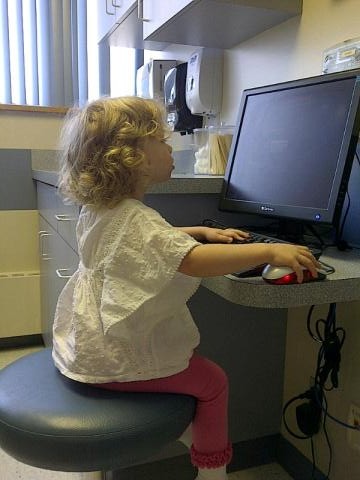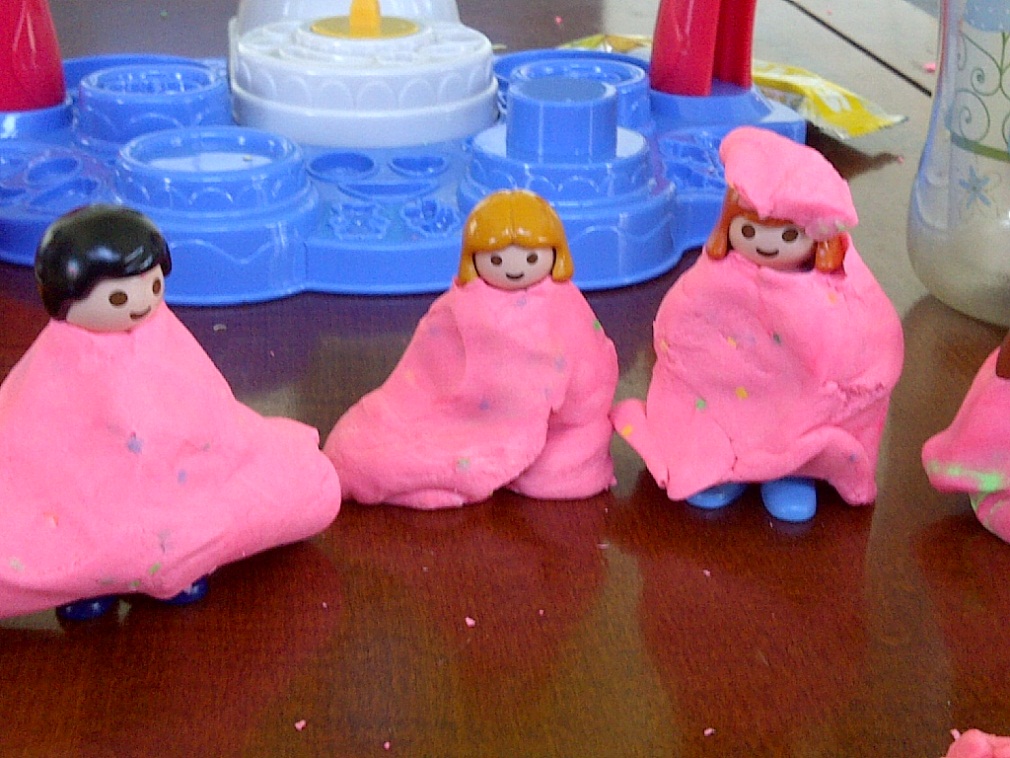“Researchers have found that those who have made a strong
commitment to an identity tend to be happier and healthier than those who have
not. Those with a status of identity diffusion tend to feel out of place in the
world and don't pursue a sense of identity.”
Kendra Cherry,
Identity Crisis - Theory and Research
Throughout
all of this, I have had several moments of clarity…perhaps it would be more
accurate to describe the latest as my great epiphany…not my discovery that
industrial rolls of HP print paper are cheaper by the foot than the ALEX or
Crayola brands that also fit the Potterybarn Kids Craft Table…it is rather my
realization that, although I may continue to rely heavily on the skill sets I
learned and honed in my previous jobs; I am really missing out on a tremendous
amount of joy and closeness with my daughter by selfishly treating the
responsibility of being her full-time father like a professional pursuit or
project that could be mastered. I am realizing the necessity of committing to
my new identity half-way through my year “sabbatical” of being a stay-at-home
dad. Although I am grateful for this break-through, I can’t help but think of
how short a window you have to assume a completely new identity …and by the
time you figure things out, you may just miss it all. I gave everything I had but confident that I
missed-out on a lot in the beginning.
Sometimes I wonder if my learning curve would have been shortened if I
had a father (as many women have mothers) to turn to…or any other man,
similarly engaged, who was able to share their wisdom derived from a similar
experience. I spoke to my mom yesterday
who told me, once again, that “…it goes by in the blink of an eye.” Only this
time I understood. My mom continues to comfort me with her ability to
commiserate, understand, laugh with, support and encourage me. I will tell her,
today, that she is the reason I have so much to give my daughter and motivates
me to share this diary in hope that I can shorten the learning curve for at
least one other like-minded former working dad.
The
following is an edited excerpt taken from: http://psychology.about.com/od/theoriesofpersonality/a/identitycrisis.htm
According to
Erik Erikson, an identity crisis is a time of intensive analysis and
exploration of different ways of looking at oneself… His studies of cultural
life among the Yurok of northern California and the Sioux of South Dakota
helped formalize Erikson's ideas about identity development and identity
crisis.
Erikson
described identity as "a subjective sense as well as an observable quality
of personal sameness and continuity, paired with some belief in the sameness
and continuity of some shared world image. But it was James Marcia (1966, 1976,
1980) who expanded upon Erikson's initial theory. According to Marcia and his
colleagues, the balance between identity and confusion lies in making a commitment to an identity.
Marcia also developed an interview method to measure identity as well as four
different identity statuses. This methods looks at three different areas of
functioning: occupational role, beliefs and values and sexuality.
Identity
Statuses
Identity achievement occurs when an individual has gone
through an exploration of different identities and made a commitment to one.
Moratorium is the status of a person who is actively involved in
exploring different identities, but has not made a commitment.
Foreclosure status is when a person has made a commitment
without attempting identity exploration.
Identity diffusion occurs when there is neither an identity
crisis or commitment.
Researchers have found that those who have made a strong
commitment to an identity tend to be happier and healthier than those who have
not. Those with a status of identity diffusion tend to feel out of place in the
world and don't pursue a sense of identity.
In today's rapidly changing world, identity crises are more
common today than in Erikson's day. Exploring different aspects of yourself in
the different areas of life, including your role at work, within the family,
and in romantic relationships, can help strengthen your personal identity.
















